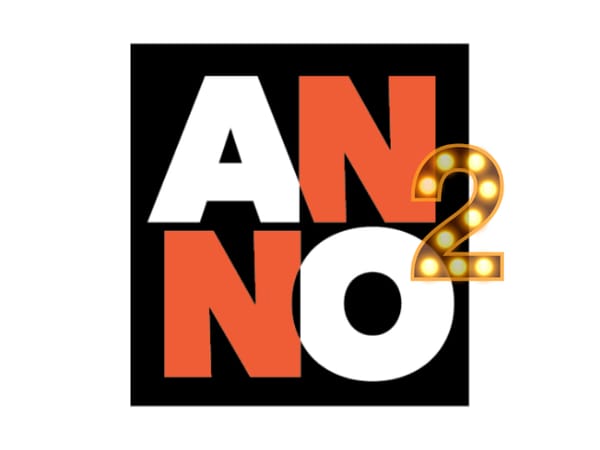Friendly Fire: The Hidden Killer of Local News
"One particularly nefarious case of friendly fire involves colleges and universities."

I was living in Brazil when the post-9/11 war in Iraq began, and I still remember a particular piece of news saying that, at that point in the war efforts, more British troops had been killed by friendly fire from US forces than from enemy efforts.
What does that have to do with local news? More than we would like to accept.
One of the main difficulties in the local news environment is the sheer number of local news outlets competing for the same dollars from the same sources.
Yet we also find ourselves competing with many journalism-adjacent companies and support groups – almost all of them getting at least part of their funding from the same foundations that otherwise fund local news outlets. And all of them with the newest plan to save local journalism.
The journalism landscape is now full of entrepreneurs selling their services and gadgets to local newsrooms. Many times, these have been funded with money that should have gone to the local newsrooms.
Journalism networks and associations also compete for the same money. Many of them are great and actually helpful, others not so much. The problem is that, for them to exist, many local newsrooms are put out of business, because the money that feeds them comes from the sources that could fund local newsrooms.
I want to believe that they are all sincere – really trying to help. But the fact is that diverting money from local news outlets and giving it to adjacent or support organizations is a form of friendly fire.
In many of these journalism-adjacent or support organizations, employees are drawing much bigger compensation packages than leadership positions in local newsrooms. Without naming names here – this article is about not shooting each other – I see jobs in many of those organizations starting above $100,000 and going north of $300,000, based on job posts and 990s. (You can easily search for them on ProPublica’s nonprofit explorer.)
I looked at a few of the best-known journalism support and adjacent nonprofits and, without exception, their main expenses are executive compensation and “other salaries and wages.” Always in the millions of dollars. That doesn’t even count all of the for-profit journalism-adjacent and support organizations selling services and products financed by nonprofit funding, and for-profit newsrooms using loopholes to draw nonprofit support.
One other particularly nefarious case of friendly fire involves colleges and universities. While many of them are purporting to “save local journalism” by using their readily available cheap labor (students) to supposedly fill in the gaps in coverage, most of those programs are also taking money from the same funding sources instead of trying to develop new sources.
The problem here is that these university programs are not fixing the local journalism problem, they are making it worse.
Students feel excited that they can do real reporting in their communities – and it’s great if they can – but then they graduate into a labor market that has been harmed by the prior use of their cheap labor. Graduates are left without jobs and with debt.
What makes it worse is that, because the university is taking that money from funding sources other local newsrooms could otherwise use and using cheap labor to do the work, independent news outlets cannot compete with them because they have to actually pay people a real salary to do the same work. Independents also have to cover their newsrooms’ expenses, which universities often provide cheaply (or cost-free) to the student news outlet.
It’s at best unfair competition, if not outright labor abuse.
Full-disclosure: I am a university professor who runs community-based newsrooms that use student cheap labor. The differences are:
- The outlets I run do not compete with local independent news outlets. We support them by providing extra hands, supporting their initiatives, and collaborating with them to get more done than they could on their own.
- All funding I use to pay students, community members, and freelancers comes from funding that cannot be directed at independent news organizations unless we are part of a mutually beneficial collaboration with the local newsroom. We apply for grants together to help local newsrooms do projects they couldn’t otherwise do for lack of time and people.
In other words, we don’t shoot our friends in the back. We back them up.
That’s what university programs should be doing. Students can be great, but they are not experienced and tested journalists and cannot do the work that those veteran journalists can with the same efficacy.
When working in supporting roles, universities improve the local media market instead of cannibalizing it. Students graduate with excellent hands-on experience and have hope of a healthy local news ecosystem with jobs for them.
We just need to make a couple of things clear before moving on:
- Competition is not necessarily a bad thing and can be a sign of a healthy media market. However, there is something to be said about collaboration and a symbiotic media market, as I will explore in a future article for Local News Blues.
- Associations, networks, universities, and other journalism adjacent and support organizations are not good or bad per se. It’s how they behave in the market, either as competitors against local news outlets or as collaborators and supporters, that matters.
If we are all “friendlies,” who is the enemy?
With the exception of those people who think “the media” is the enemy and look to cause harm, the main enemy is the system we’ve developed. Our current media market incentivizes harmful behaviors and disincentivizes helpful ones.
We have built a strange structure in which the definition of “journalism” or “media” includes everything from true public-service news to conspiracy-theory talk shows and entertainment products aimed at making a profit for a few.
Funders need to be better at discerning public-serving civic information providers – organizations that provide “useful information about the public life, government, and other important knowledge that need to be shared by a large public” – from things that are simply interesting or entertaining. This is not a partisan stance; it’s attending to the very fabric of a democratic society.
The news is the only form of curated mass education that is commonly consumed by most people on a daily basis. Yes, the internet gives people access to all the information in the world. But it does not give people the time, knowledge, training and wisdom to differentiate facts from trash. That’s the job of journalists who are paid to take time to carefully gather, curate, and verify information before sharing it with the public. Learning how to verify credible sources is very time consuming already, but actually doing it on a daily basis – well, you need it to be your job (or at least a very obsessive hobby).
People usually quote Thomas Jefferson’s famous line about newspapers and government (bolded below) out of context. The full quote is:
“The people are the only censors of their governors: and even their errors will tend to keep these to the true principles of their institution. To punish these errors too severely would be to suppress the only safeguard of the public liberty. The way to prevent these irregular interpositions of the people is to give them full information of their affairs thro’ the channel of the public papers, & to contrive that those papers should penetrate the whole mass of the people. The basis of our governments being the opinion of the people, the very first object should be to keep that right; and were it left to me to decide whether we should have a government without newspapers or newspapers without a government, I should not hesitate a moment to prefer the latter. But I should mean that every man should receive those papers & be capable of reading them.”
It is clear that both the part that comes before and after the line frequently quoted are as, if not more, important as the bolded section by itself. Jefferson was talking about a civically educated public and about newspapers that properly inform people about the acts of government and of public life. (Sure, Jefferson didn’t keep that opinion once he became president, but that is a discussion for a whole book or dissertation. I did write a dissertation that touches on that specific issue, if you are the dissertation-reading type.)
All this to say that granting foundations and governmental agencies need to be better educated about the nature of public-serving media and, in particular, about hyperlocal, community-based news organizations. We need them to create incentives that will allow more of the news organizations that are already doing that work of informing and educating the public about the affairs of government and public life to have access to proper funding.
We also need these institutions to stop funding journalism-adjacent and support organizations from the same pots of money they fund local journalism. I am sure that those organizations, at least the actually helpful ones, won’t mind if their money comes from a separate fund created for workforce training, education, or civic engagement if the local news fund goes in its entirety to actual local news organizations.
After all, if they really want to save local journalism as they say they do, that’s the only way.
Bernardo H. Motta is an associate professor of journalism at Roger Williams University and is the founder and editor-in-chief of the transformative journalism outlet Communities of Hope Civic Media, serving Rhode Island. He is also a member of the Local News Blues editorial board. Read more at the Local News Blues contributors page.





